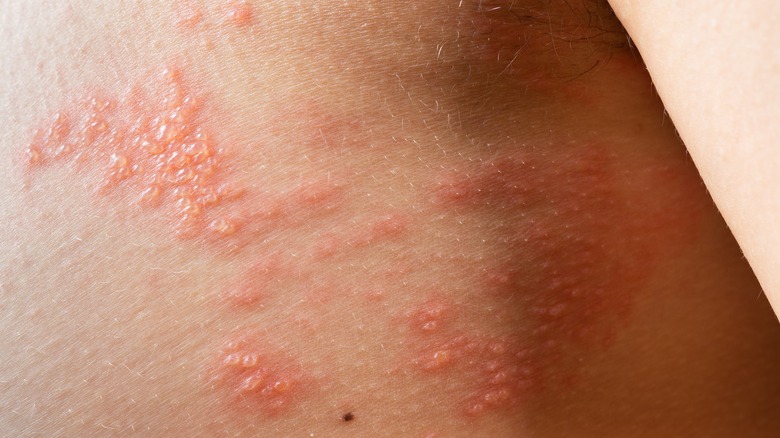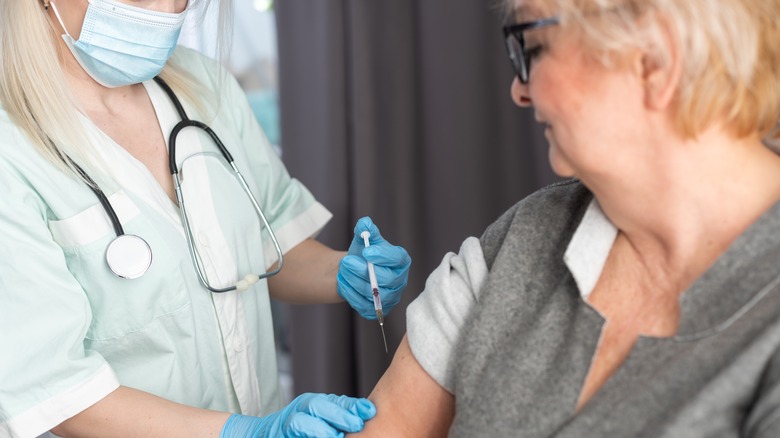Is It Possible To Get Shingles More Than Once?
Characterized by severe pain, itching, numbness, and blistering rashes, shingles stems from the varicella-zoster virus, which is also responsible for chickenpox, reports WebMD. After one experiences chickenpox, the virus sticks around, remaining inactive within the nerves. From then on, our immune system goes to work keeping the virus suppressed (via GoodRx). In some cases, however, the virus becomes activated again in the form of shingles.
According to WebMD, while it's unclear exactly what causes this resurgence of the virus, health experts state that certain factors, such as age and compromised immunity, can place one at an increased risk for developing shingles. For those who develop shingles, odds are that they will only experience it once in their lives, reports the U.S. Centers for Disease Control and Prevention (CDC). However, it's not impossible to get shingles more than once. Dr. Barbara Yawn, director of research at Olmsted Medical Center in Rochester, Minnesota, tells WebMD, "The risk of getting shingles again, once you already have it, is about one in three."
Can you prevent cases of recurrent shingles?
Researchers from a 2011 longitudinal study published in Mayo Clinic Proceedings looked at health records from over 1,660 individuals at least 22 years of age who'd had a prior confirmed case of shingles between 1996 and 2001. The researchers followed up with patients for as many as 12 years after their initial outbreak. At the eight-year mark, the average rate for a recurrent shingles episode stood at 6.2%. Time lapsed between outbreaks ranged from 96 days to as much as a decade later in patients.
The researchers also identified various factors linked with an increased risk for recurrent cases of shingles, per the study. Such risk factors included being over the age of 50 at the time of the initial outbreak, having compromised immunity, as well as prolonged pain lasting at least 30 or more days from the first episode. Experts at GoodRx note that more often than not, recurrent shingles is likely to emerge on a different area of the body than seen in prior outbreaks.
While recurrent cases of shingles cannot be entirely prevented, health experts state that the Shingrix vaccine is the best line of defense against potentially getting shingles again (via GoodRx). With a protection rate ranging from 90% to 97%, the vaccine is usually recommended for those who are at least 50 years of age. However, exceptions are sometimes made for younger people with compromised immunity who may be good candidates for the vaccine.


